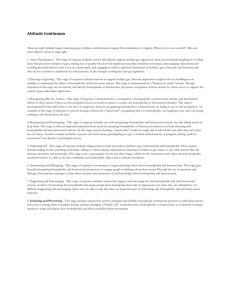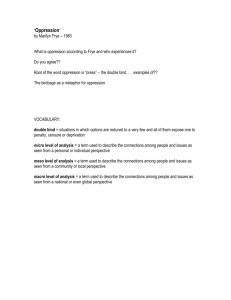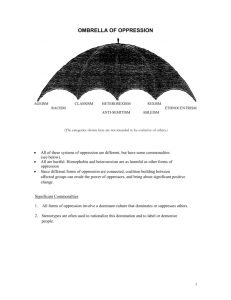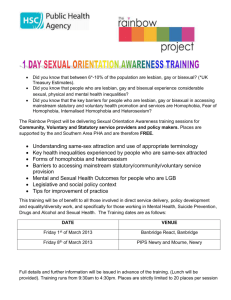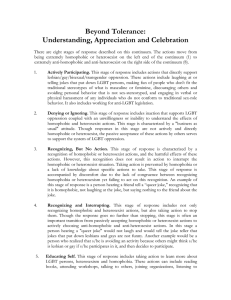Cost of Heterosexism: How Heterosexism Hurts Us All
advertisement
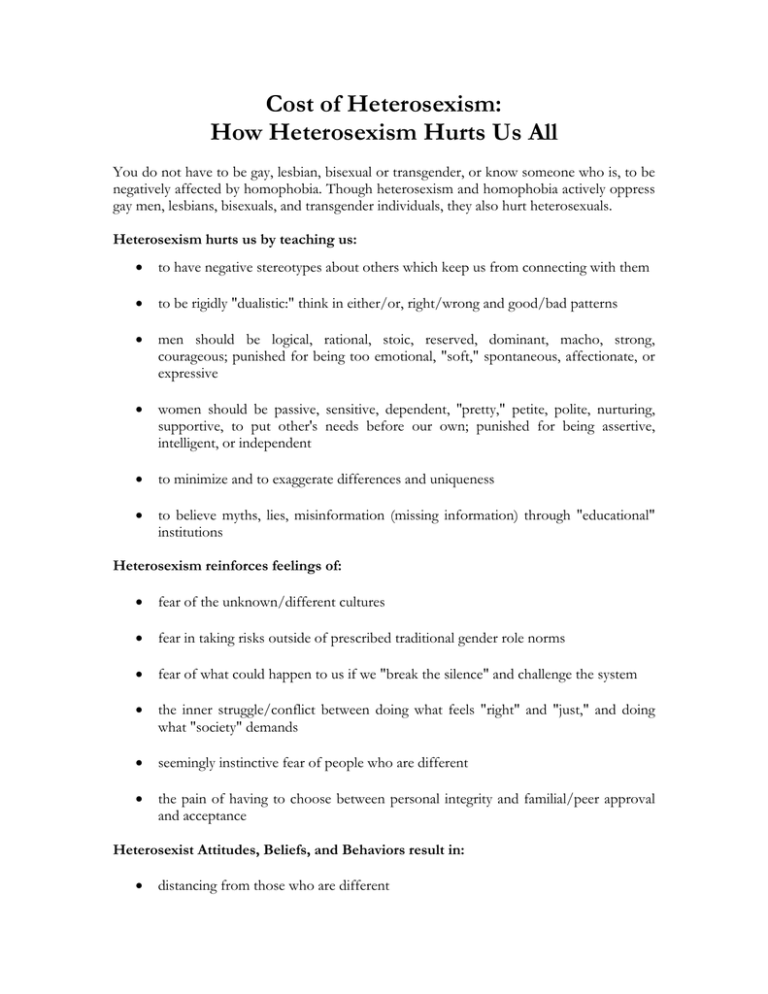
Cost of Heterosexism: How Heterosexism Hurts Us All You do not have to be gay, lesbian, bisexual or transgender, or know someone who is, to be negatively affected by homophobia. Though heterosexism and homophobia actively oppress gay men, lesbians, bisexuals, and transgender individuals, they also hurt heterosexuals. Heterosexism hurts us by teaching us: • to have negative stereotypes about others which keep us from connecting with them • to be rigidly "dualistic:" think in either/or, right/wrong and good/bad patterns • men should be logical, rational, stoic, reserved, dominant, macho, strong, courageous; punished for being too emotional, "soft," spontaneous, affectionate, or expressive • women should be passive, sensitive, dependent, ''pretty," petite, polite, nurturing, supportive, to put other's needs before our own; punished for being assertive, intelligent, or independent • to minimize and to exaggerate differences and uniqueness • to believe myths, lies, misinformation (missing information) through "educational" institutions Heterosexism reinforces feelings of: • fear of the unknown/different cultures • fear in taking risks outside of prescribed traditional gender role norms • fear of what could happen to us if we "break the silence" and challenge the system • the inner struggle/conflict between doing what feels "right" and "just," and doing what "society" demands • seemingly instinctive fear of people who are different • the pain of having to choose between personal integrity and familial/peer approval and acceptance Heterosexist Attitudes, Beliefs, and Behaviors result in: • distancing from those who are different • a false sense of superiority • self-righteous attitudes • false sources of self-esteem • a monocultural understanding of life • unconsciously colluding with the system of heterosexism • unknowingly acting on our privileges and power without understanding how we are hurting/oppressing others • being forced to conform to socialized standards of the dominant heterosexual culture Losses as a result of Heterosexism: • being prejudged as an active heterosexist, a threat, an oppressor without being given the chance to demonstrate otherwise • not being encouraged to develop communities with gays, lesbians and bisexuals; to work collectively to create or change things • adopting stereotypes and myths that undermine attempts to build coalitions of groups working together to create change at a systems level • being kept in competition with members of other targeted groups, competing for the "scraps and leftovers" from the table of oppression • being prevented from having a deeper understanding of the inter-relatedness of all forms of oppression • having a lack of meaningful relationships and true community with gays, lesbians, bisexuals and transgendered persons • being so full of negative thoughts, feelings, stereotypes and hatred towards others affects our mental health • accepting the realities of "punishments" from individuals, groups and societal institutions if we choose to challenge heterosexism • not being taught the interconnections between all of the "isms:" racism, classism, sexism, heterosexism, ageism, Jewish oppression, disability oppression, and others. • being drawn into the destructive competition over "which form of oppression is the worst" • being blinded to the interconnectedness of all forms of oppression and pits people against each other • being conscripted into "doing the oppressors' work" for them Kathy Obear, The Human Advantage, 1991
